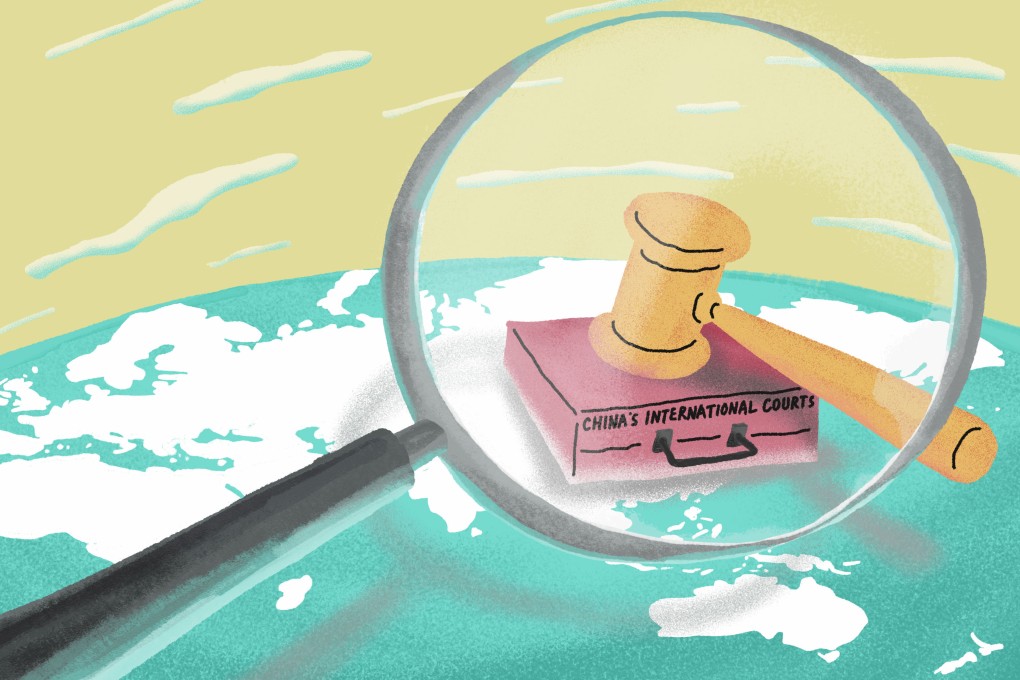Can China’s international courts meet the challenge of the country’s global ambitions?
- As the Belt and Road Initiative increases foreign business, China has created more international commercial courts to handle disputes
- But experts warn that problems like no foreign judges being allowed plus a lack of expertise have left international players with trust issues

Over the past three years, 12 such municipal-level courts, carrying the mission of “a stable, fair, transparent and predictable legal environment” for both Chinese and foreign businesspeople, have popped up in China’s major economic hubs – and more are expected.
But they have warned more improvements are needed, as constitutional limitations like no foreign judges, an overall lack of expertise in foreign-related law and the potential interference of the ruling Communist Party cast doubts on the courts’ impartiality and independence.
China’s Supreme People’s Court first set up two national-level international commercial courts in 2018 to handle belt and road-related disputes – one in the southern city of Shenzhen, Guangdong province, to solve maritime-based cases and the other in the western city of Xian, Shaanxi province, to process land-based cases.
